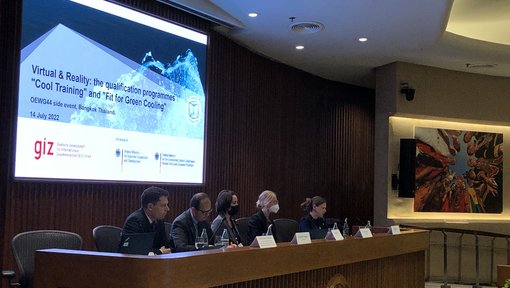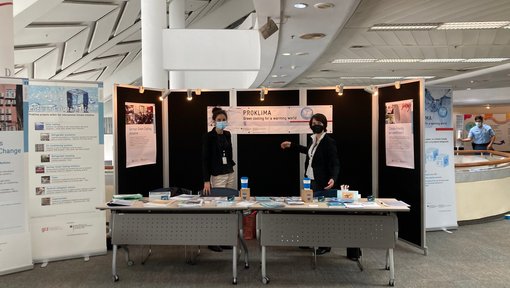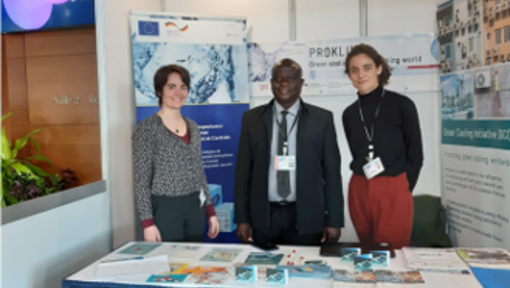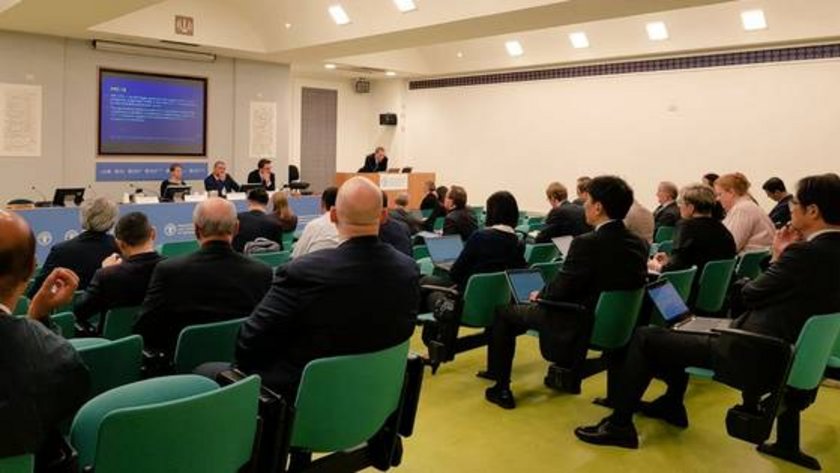Proklimas Side Event II at MOP31 focused on the discussions of CFCs and if they are “an issue of the past”. Latest news about the unexpected increase of CFC-11 emissions show how relevant this topic still is.
Around 40 participants learned more about possible reasons for the increase of CFC-11 emissions, current CFC banks and potential countermeasures. Lambert Kuijpers, member of the Technology and Economic Assessment Panel (TEAP) and part of the CFC-11 Emissions Task Force provided an overview of CFC banks and emissions under the Montreal Protocol.
The main focus of this event was on ODS banks management. The audience received insights into the new study on banks and emissions of CFC-11 and CFC-12 funded by BMU. Policy advisor Irene Papst (HEAT) illustrated country data from Germany, Austria and USA and possible consequences for global modelling. Youssef Hammami, coordinator of the National Ozone Unit in Tunisia, presented the ODS banks management of his country. GIZ Proklima would like to thank all speakers and attendees and BMU and BMZ for their support.
The presentations of this event are available here. (opens in a new window)

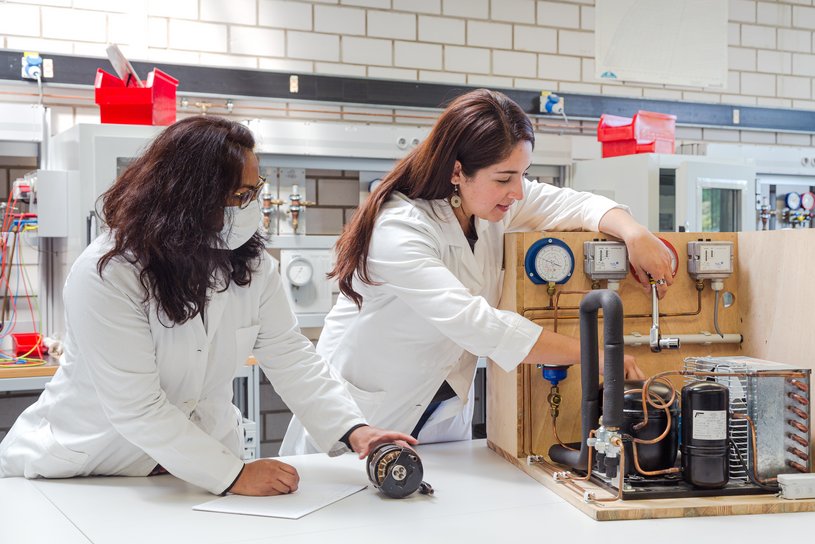 Image: giz / Andreas Döring
Image: giz / Andreas Döring